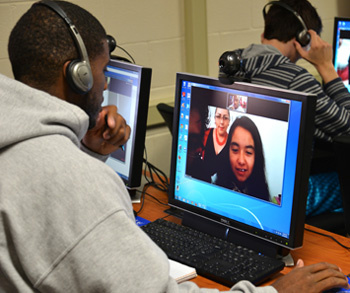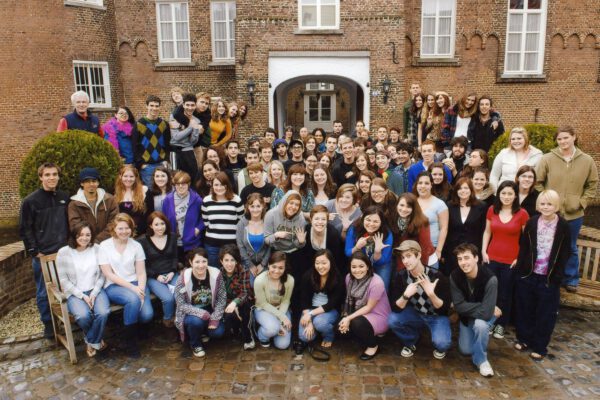How Cal State LA Promotes Civic Learning
Michael Willard, faculty director of service learning for California State University LA’s Center for Engagement, Service, and the Public Good, writes about how to prepare faculty to prepare students to be civically engaged citizens.
A version of this case study was originally posted on the Association of College and University Educators blog, The Q. Read the full post here.
At a recent civic learning workshop for Cal State LA faculty, my colleagues and I received some timely words of wisdom.
Over the last two years, faculty at Cal State LA have developed a new general education curriculum as part of the university’s commitment to civic learning. The new curriculum, rolling out this fall, is focused on helping students develop the skills and knowledge needed to solve real-world problems that prepare them not only for a career but also to serve the public good.
This hard work entailed redesigning courses and converting schedules from 10-week quarters into 15-week semesters. Now we face the equally challenging task of teaching students in a way that will help empower them to become civically engaged citizens.
Preparing Faculty to Scale Civic Learning
In the fall, new Cal State LA students at the lower-division level will take a newly revised general education course: Introduction to Higher Education. The course, which will include assignments to meet civic learning outcomes, is designed to acclimate students to the academic rigors of college. It will introduce students to university resources and help them develop effective study skills, such as information literacy.
With approximately 4,000 students entering the university in August, we believe it is important to provide a strong foundation for faculty. To provide a common starting point, I worked with Catherine Haras, director of Cal State LA’s Center for Effective Teaching and Learning, to develop guidelines that would enable faculty to adapt new civic learning assignments to discipline-specific research methods.
The framework that we developed is based on solving problems related to local, real-world issues. This general approach means that faculty will have additional flexibility to create assignments that are based on and relevant to students’ interests and their personal experiences.
ACUE’s Civic Learning Module
To support faculty, we integrated face-to-face workshops with an online Civic Learning module developed in collaboration with ACUE. For the last month a cohort of instructors all have gone through the module, which features videos of classroom demonstrations from exemplary instructors at Cal State LA. The module also includes video tutorials that focus on specialized areas within the civic learning topic: civic knowledge, civic skills, and civic values.
This summer, more faculty will participate in the workshops and take ACUE’s online course. We plan to eventually offer the program to all faculty who teach a course tied to the new civic learning curriculum.
Civic Learning at the Center
The civic lesson in all of this is that faculty help students to reflect on how the disciplinary expertise they will gain in pursuing any major at the university can serve as preparation for a career or profession—and that the same expertise can be used to generate knowledge which serves the public good. As a result, students will view problem solving as a lifelong skill that is as transferable to one’s personal life as it is to the workplace or civil society.
ACUE partners with colleges and universities at all levels of the institution to support student success strategies through an innovative Course in Effective Teaching Practices. ACE is collaborating with ACUE in a joint venture as part of its nearly century-old mission to prepare campus leaders, support the work of colleges and universities and assist institutions in strengthening student learning, persistence and completion.
Become a member: As a member of ACE, you join over 1,600 organizations that collectively promote, protect and advocate for students, faculty and administrators in higher education. ACE is the most visible and influential higher education association in the nation, and we are at the center of federal policy debates concerning legislation that affects campuses across the country. See more on the ACE website.
If you have any questions or comments about this blog post, please contact us.


